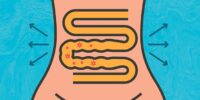Chinese Medicine For Allergies: Natural Solutions For Alleviating Symptoms
Chinese Medicine has been used for centuries to treat a wide range of health conditions, including allergies. This article explores the natural solutions offered by Chinese Medicine for alleviating allergy symptoms.
Chinese Medicine is based on the principles of balancing the body’s energy, or Qi, and restoring harmony to the body. Herbal remedies are commonly used to treat allergies, targeting the root cause of the symptoms.
Acupuncture is another effective treatment option, where thin needles are inserted into specific points on the body to alleviate allergy symptoms.
Cupping therapy, dietary changes, lifestyle practices, breathing exercises, and meditation are also recommended to reduce allergy symptoms and prevent future attacks.
Consulting with a Chinese Medicine practitioner can provide personalized treatment and guidance for allergy relief. By incorporating these natural solutions, individuals suffering from allergies can find relief and improve their overall well-being.
The Principles of Chinese Medicine
The principles of Chinese medicine provide a holistic approach to understanding and treating allergies, focusing on restoring balance and harmony within the body’s systems.
According to Chinese medicine, allergies are seen as an imbalance or disharmony in the body’s energy, or Qi. This imbalance can be caused by various factors, such as a weakened immune system, environmental factors, or emotional stress.
Chinese medicine aims to strengthen the body’s Qi and restore balance through a combination of herbal medicine, acupuncture, and dietary recommendations. Herbal medicine is often used to address the underlying causes of allergies, such as strengthening the immune system or reducing inflammation.
Acupuncture is used to stimulate specific points on the body to rebalance the flow of Qi. Additionally, dietary recommendations may include avoiding certain foods or incorporating specific foods that support the body’s immune system.
By addressing the root causes of allergies and restoring balance, Chinese medicine offers a natural approach to alleviating allergy symptoms.
Herbal Remedies for Allergies
Herbal remedies offer a potential alternative approach to managing the discomfort caused by allergic reactions. These remedies have been used in Chinese medicine for centuries and are believed to help alleviate allergy symptoms by rebalancing the body’s energy and strengthening the immune system.
Here are three herbal remedies commonly used in Chinese medicine for allergies:
-
Butterbur: This herb has been shown to have anti-inflammatory properties and may help reduce allergic reactions, particularly those related to hay fever.
-
Astragalus: Known for its immune-boosting properties, astragalus is often used in Chinese medicine to help prevent and treat allergies. It is believed to enhance the body’s defense against allergens.
-
Nettle: Nettle is a natural antihistamine and may help relieve symptoms such as sneezing, itching, and congestion. It is often used in combination with other herbs to address multiple allergy symptoms.
While herbal remedies can be beneficial, it’s important to consult with a qualified practitioner before using them to ensure their safety and effectiveness for individual needs.
Acupuncture for Allergy Relief
Acupuncture, a traditional Eastern medical practice, has been explored as a potential method for providing relief from allergic reactions by targeting specific energy points in the body.
This technique involves the insertion of thin needles into specific acupuncture points along the body’s meridian pathways.
Proponents of acupuncture believe that it stimulates the flow of energy, known as qi, and helps to rebalance the body’s energy and improve overall health.
In the case of allergies, acupuncture is thought to help regulate the immune response and reduce inflammation, thus alleviating symptoms such as sneezing, itching, and congestion.
While there is limited scientific evidence to support the effectiveness of acupuncture for allergies, some studies have shown promising results.
However, further research is needed to fully understand the mechanisms and potential benefits of acupuncture as a treatment option for allergic conditions.
Cupping Therapy for Allergies
This paragraph will discuss the benefits of cupping therapy and the different cupping techniques that can be used for allergies.
Cupping therapy is a traditional Chinese medicine technique that involves placing cups on the skin to create suction. It is believed to help improve blood flow and stimulate the immune system, which may provide relief from allergy symptoms.
There are several different cupping techniques that can be used for allergies, including dry cupping, wet cupping, and fire cupping, each with its own unique benefits and effects.
The benefits of cupping
Cupping therapy, a traditional Chinese medicine technique, offers a non-invasive approach for alleviating allergy symptoms. The benefits of cupping therapy are numerous.
-
Improved blood circulation: Cupping therapy involves placing cups on the skin to create suction. This suction stimulates blood flow, which can help to reduce inflammation and promote the body’s natural healing processes.
-
Detoxification: Cupping therapy is believed to help remove toxins from the body. The suction created by the cups can draw out impurities and stimulate the lymphatic system, aiding in the elimination of waste products.
-
Relaxation and stress reduction: Cupping therapy is often accompanied by a sense of relaxation and well-being. The gentle suction and massage-like effect of the cups can help to relieve tension and promote a state of relaxation, which can be beneficial for managing allergy symptoms.
Overall, cupping therapy offers a natural and non-invasive option for individuals seeking relief from allergies.
Different cupping techniques for allergies
One popular technique used in cupping therapy for addressing allergic reactions involves the application of heated glass cups to specific areas of the body. This technique is known as ‘fire cupping’ or ‘dry cupping.’ During the procedure, the therapist places a cotton ball soaked in alcohol on the bottom of the glass cup and sets it on fire.
As the fire goes out, the cup is quickly placed upside down on the skin, creating a vacuum effect. The suction created by the cups helps stimulate blood flow and lymphatic drainage, which can help alleviate allergy symptoms. Some practitioners also use a technique called ‘moving cupping,’ where the cups are moved along the skin to further enhance the therapeutic effect.
These cupping techniques aim to promote the body’s natural healing processes and provide relief from allergy symptoms.
Dietary Changes to Reduce Allergy Symptoms
Dietary modifications can offer potential relief for individuals seeking to alleviate allergy symptoms through natural means. Making certain changes in one’s diet can help reduce the severity of allergies and improve overall well-being. Here are some dietary modifications that may help alleviate allergy symptoms:
-
Increase intake of anti-inflammatory foods such as fruits, vegetables, and omega-3 fatty acids found in fish and flaxseeds.
-
Avoid or reduce consumption of common allergens like dairy, gluten, and processed foods, as they can trigger allergic reactions.
-
Incorporate probiotic-rich foods like yogurt, sauerkraut, and kefir into the diet to promote a healthy gut microbiome, which can strengthen the immune system.
-
Stay hydrated by drinking plenty of water throughout the day to help flush out toxins and reduce inflammation.
These dietary changes, combined with other natural remedies, may provide relief for individuals suffering from allergies and improve their quality of life.
Lifestyle Practices for Allergy Prevention
Lifestyle practices, such as maintaining a clean living environment and minimizing exposure to potential allergens, play a crucial role in preventing the onset of allergic reactions.
Keeping the home clean and free from dust, mold, and pet dander can significantly reduce the risk of allergies. Regularly vacuuming carpets, washing bedding in hot water, and using air purifiers can help eliminate allergens from the living environment.
Additionally, minimizing exposure to potential allergens, such as pollen, by keeping windows closed during high pollen seasons and avoiding outdoor activities during peak pollen times can further prevent allergic reactions.
Practicing good personal hygiene, such as washing hands frequently and showering after being outside, can also reduce the likelihood of allergen exposure.
These lifestyle practices, when combined with dietary changes and proper medical treatment, can effectively alleviate allergy symptoms and improve overall well-being.
Breathing Exercises and Meditation for Allergy Relief
Breathing exercises and meditation have been found to provide relief for individuals suffering from allergic reactions. These practices aim to reduce stress levels, which can exacerbate allergy symptoms.
Deep breathing exercises, such as diaphragmatic breathing, have been shown to promote relaxation and decrease the body’s stress response. By focusing on slow, deep breaths, individuals can reduce anxiety and improve overall well-being.
Additionally, meditation practices, such as mindfulness meditation, can help individuals become more aware of their body and mind, allowing them to better manage their allergic reactions. Regular meditation has been shown to improve immune function and reduce inflammation, both of which can contribute to allergy relief.
Therefore, incorporating breathing exercises and meditation into one’s daily routine may offer natural solutions for alleviating allergy symptoms.
Consultation and Treatment with a Chinese Medicine Practitioner
Chinese medicine offers a holistic approach to treating allergies, focusing on the root cause rather than just alleviating symptoms. In the previous subtopic, we explored breathing exercises and meditation as natural remedies for allergy relief.
Now, we shift our attention to the importance of consulting with a Chinese medicine practitioner for personalized treatment. These practitioners have extensive knowledge of the body’s meridian system and can identify imbalances that may be contributing to allergies.
Through a thorough consultation, they assess the patient’s overall health and create a treatment plan tailored to their specific needs. Treatment may involve a combination of acupuncture, herbal medicine, dietary adjustments, and lifestyle recommendations.
By addressing the underlying imbalances, Chinese medicine aims to strengthen the body’s immune system, reduce allergic reactions, and improve overall well-being.
Frequently Asked Questions
Can Chinese medicine completely cure allergies?
Chinese medicine cannot completely cure allergies. While it may help alleviate symptoms, allergies are complex and depend on individual factors. Chinese medicine can be used as a complementary approach alongside other treatments for better symptom management.
Are there any side effects or risks associated with Chinese medicine treatments for allergies?
There are potential side effects and risks associated with Chinese medicine treatments for allergies. These may include allergic reactions to certain herbs, interactions with other medications, and the possibility of misdiagnosis or delayed treatment of underlying conditions.
How long does it take to see results from Chinese medicine treatments for allergies?
The time required to observe results from Chinese medicine treatments for allergies can vary depending on individual factors such as the severity of symptoms, treatment approach, and adherence to the prescribed regimen.
Can Chinese medicine treatments be used in conjunction with conventional allergy medications?
Chinese medicine treatments can be used in conjunction with conventional allergy medications, as they may offer additional relief and support. However, it is important to consult with a healthcare professional to determine the appropriate combination and dosage.
Is Chinese medicine suitable for children with allergies?
Chinese medicine can be suitable for children with allergies. It offers natural solutions for alleviating symptoms and can be used in conjunction with conventional allergy medications, providing a holistic approach to managing allergies in children.









